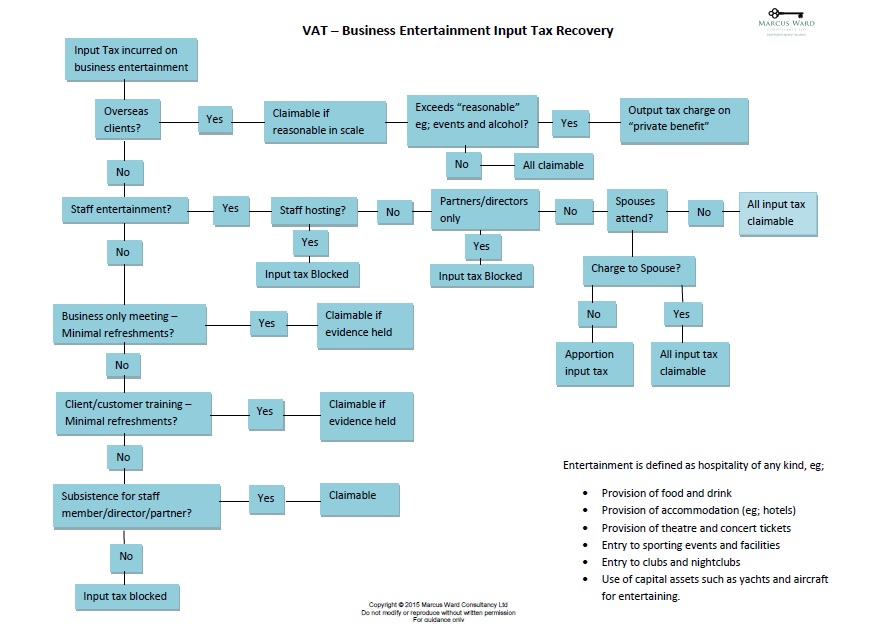A question I am often asked by my legal and accountant clients is “Do we charge VAT on our invoices?” The main issue with this general question is the place of supply (POS). Consequently, I have produced a simple flowchart which covers most situations and applies to all providers of professional services. Of course, this being VAT, there are always unusual or one-off queries, but this chart, with the notes should address the most common issues.
Place of supply Of Services Flowchart
POS services flowchart
Notes to flowchart
As always, nothing in VAT is as simple as it seems. So I hope the following notes are of assistance.
Place of belonging
If the services are supplied to an individual and received by him otherwise than for the purpose of any business carried on by him, he is treated as belonging in whatever country he has his “usual place of residence”.
If the services are in respect of an individual’s business interests, then more complex rules on the place of belonging may apply. The issue is usually where more than one “establishment” exists. In these cases, the rule is the place of belonging is the “establishment” at which, or for the purposes of which, the services are most directly used or to be used.
A guide to belonging here
Property rental in the UK
Property rental is treated as a business for VAT purposes. We must decide whether a rented property here creates a business establishment in the UK for the landlord. If a person has an establishment overseas and owns a property in the UK which it leases to tenants; the property does not in itself create a business establishment. However, if the entity has UK offices and staff or appoints a UK agency to carry on its business by managing the property, this creates a business establishment (place of belonging) in the UK. VAT Act 1994 s. 9 (5) (a). In these cases, the professional services would likely be UK to UK and be standard-rated.
Difference between business and non-business:
Services provided to an individual are likely to be non-business unless the services are linked to that individual’s business activities, eg; as a sole proprietor. Therefore, an individual’s tax return is, in most cases, likely to be in the recipient’s non-business capacity (although it may be prudent to identify why a UK tax return is required for a non-UK resident individual, ie; what UK activities have taken place and do these activities amount to a business or create a business establishment?)
This is an area that often gives rise to uncertainties and differences in interpretation (particularly when deciding which establishment has most directly used the services). It may be helpful to reproduce a specific example provided by HMRC:
Example
“A UK accountant supplies accountancy services to a UK incorporated company which has its business establishment abroad. However, the services are received in connection with the company’s UK tax obligations and therefore the UK fixed establishment, created by the registered office, receives the supply.”
As always, please contact us should you have any queries.

